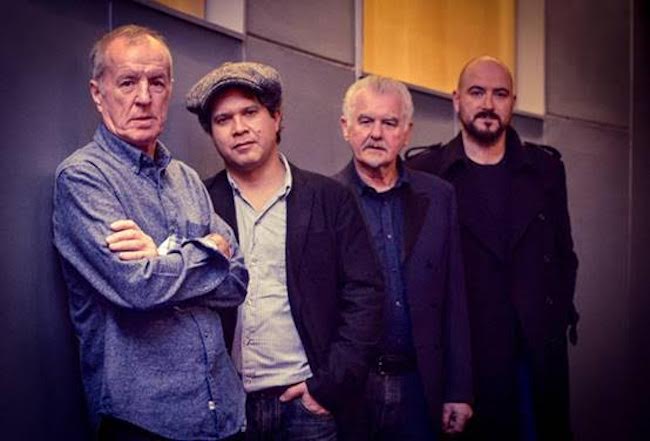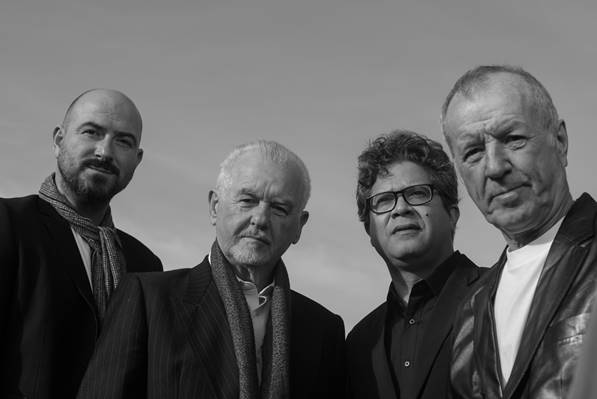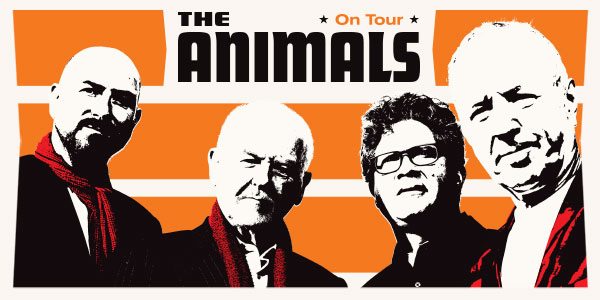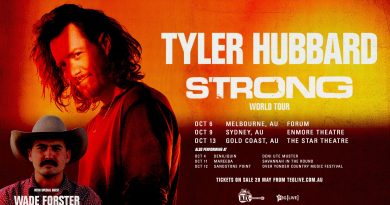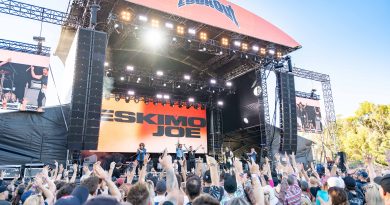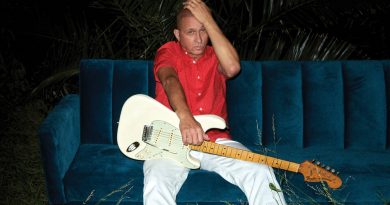Interview: John Steel (The Animals)
Interview by Sheldon Ang
Britannia Ruled the airwaves in 1964.
The Animals became the second British band to top the American charts after The Beatles. Featuring original member John Steel thanks to the seminal piece in House of The Rising Sun, We Gotta Get Out Of This Place, plus Boom Boom, Don’t Let Me Be Misunderstood, I Put A Spell On You, It’s My Life.
In a candid interview, I spoke with John Steel ahead of their Australian tour. Along with Eric Burden, the drummer is the founding member of The Animals and unbelievably still rocking the world stage at 82

Magnitude
Sheldon: I was googling the top British bands from the 60s and among the 1 the Beatles, 2 the Who, 3 the kinks, 4 The hollies, and 5 – The Animals…who were ahead of the Rolling Stones. Can you give us a sense of how huge were The Animals?
John Steel: It was a short life span. The band kicked off with Eric Burdon in 1956 and what became The Animals in 1963 after going through a series of different names. The original band broke up in 1966 and we moved on through various forms after that. And the most important years when we had the hit records between 1964 and 1966. So at that time we were pretty there as you said – in the same league as The Rolling Stones and The Beatles. It was pretty exciting for us, as at the start we were just a house band in Newcastle in the early 60s, and in 1963 we went to London to try our luck, and within 6 months our second record went to number 1 – that was pretty exciting stuff from us,
Sheldon: When I think of 60s rock bands, I visualise screaming girls in black and white footage. Were you guys chased by women and guys a lot?
John Steel: Hah! (Chuckes). We were pretty much a guys’ band form the start…we were known in Newcastle as we were playing at The Go Go, and when we got to London, we soon appeared on tv and radio – but we never got chased around like The Beatles did (chuckles). And with female following…we didn’t that until we went to New York in ‘64 and there were girls, and we weren’t used to that, and we were being mobbed by teeny boppers across the States. It was scary stuff!
Concerts in the era
Sheldon: I noticed through archived footages that most of the concerts played in the 60’s were formed at smaller venues, even by the Beatles.
John Steel: Yes, The Beatles were the first band to play in a stadium and that was in New York. Until then all concerts were played in theatres, in clubs, and a lot of the UK bands played in theatres when they toured in America. The first big venue we played was before a 3000 people. The only time we played in a big venue was in San Francisco which had 12,000 in capacity. The stadium didn’t really happen until the late 60s with the likes of Led Zeppelin and Jimmy Hendricks of course.
Sheldon: I heard the concerts back then didn’t go for too long?
John Steel: Also we used to play anywhere between thirty and sixty minutes and usually with other bands – and that was first time we played in the Paramount Theatre…and they had movies in between sets…so It was really a strange thing for us
House Of the Rising Sun
Sheldon: House of The Rising Sun was one of the seminal pieces of The Animals’ history. I believe it was first played at a Chuck Berry’s concert. Was that when The Animals realised the version was going to be huge?
John Steel: Yeah it was song that we were kicking around, working the arrangement for, and when we went to London we were signed up to an agent, John Ardent who was bringing Chuck Berry over to the UK for the first visit, and said, ‘We are going to put you on support for Chuck Berry’. There were other bands on tour, Carl Perkins – the guy who wrote Blue Suede Shoes for Elvis Presley said so it was a Rock N Roll tour. Chas Chandler who was our bass player who also became the manager for Jimmy Hendricks and Slade…at that time he had a business head and said, ‘Eric Burdon is going to play rock and roll on this tour’…and The House of The Rising Sun is a complete contrast because we just got the arrangement in shape. So he was dead right; we played that song (in a rock and roll tune) and within a week into the tour we realised from the audience it was something special…and we drove to London to a little studio where we recorded the first single, and it was very primitive studio, and then we played one time and that was it; it was in the can. One take.
Sheldon: Is it true that Bob Dylan first heard the house of the rising sun in his car, and came out banged on his bonnet, and inspired him to go electric.
John Steele: Yeah we found this song in Bob Dylan’s album which was purely acoustic. The first thing we wanted to do when we got to New York was to meet up with Bob Dylan. And we were big fans of his and it was an arranged meeting…we met at his manager’s apartment and had nice chips, salad and wine and he took us on a pub crawl and then he played us some tracks and mixed some songs that he was working on at that time. He was in a studio recording his first ever electric folk and he told us then he heard our version on radio and that made him to go towards the direction.
Sheldon: And the fact the House of The Rising Sun became the most popular version is because of the electric folk element to it?
John Steel: I don’t know really, over the years so many said they exactly know where they were when they first heard the song, and people talk with us after the show at meet and greet telling us that was the first song I have ever learned on my electric guitar. House of the Rising Sun – I don’t know what’s the answer to that, maybe it is a song that has a universal appeal?
We’ve Gotta Get out of This Place
Sheldon: We’ve Gotta Get out of This Place song was the anthem of the Vietnam War. It was released in 1965 but USA ground forces landed in 1965 as well. Obviously, the song wasn’t written for the war. So when did it first become the anthem?
John Steel: Yes, when we recorded the song, we liked the song. We didn’t have any motive but it turned out to be like that. We only found out in later years it was used in the US Forces which was much later in the late 60s and apparently we were told it was number one for three years in the US network. It became the anthem for all over the world, leaving school, leaving university, leaving the job. It became the anthem – it wasn’t the intension to be like that…it was a great song…
Sheldon: Does the song have deeper meaning?
John Steel: We didn’t give much thought, it is a growing up music, it has that We’ve Gotta Get Out of this Place, Don’t Let Me Be Misunderstood feel, so it was a sort of song that people can identify themselves in what’s happening in their life. That’s why the song is so strong today.
The Legacy
Sheldon: The Animals were inducted into the Rock and Roll hall of Fame in 1994. And many years later Bruce Springsteen did a speech and said “They were the first records with full-blown class consciousness that I’d ever heard.” Of “We Gotta Get Out of This Place” “That’s every song I’ve ever written … That’s ‘Born to Run,’ ‘Born in the U.S.A.,’ everything I’ve done for the past 40 years including all the new ones. That struck me so deep. It was the first time I felt I heard something come across the radio that mirrored my home life, my childhood.”
It must be surreal for the band to not only defined the mindset of several generations but also haped the music flare for many great artists.
John Steel: Absolutely, that is brilliant. You see that on Youtube, he said that every night in his tour, you know The Animals song inspired him, everything he wrote and played somehow based on We Got It Out Of This Place, is my life…which is very generous of him…very pleased to hear that.
Sheldon: The most memorable artist you’ve worked with?
John Steel: The most exciting tour we did was with Chuck Berry because he was one of my heroes and it was fantastic to see him every night. He had a good backup band and after the tour, he was on top of the game and that was always glad to see. He was a rock and roll poet but he was very stingy, and later down the years he got away with little as possible for the most money.
Fame and the clandestine
And how was it like to be famous in those Britannia era?
I never got carried away from what people would say that comes with fame; I’m a rock and roll drummer and just do what I had to do as a job and fortunately I was managing to get though without too much trouble and we never been in a situation where we couldn’t walked out of the house; it must have been really uncomfortable. My idea of a good time in the 60s was to sneak off and go to a jazz clubs in London and New York…no one really knew me in those clubs.
The Tour
What do u look forward in touring Australia
Yeah the tour wasn’t meant to be in 2020 but the pandemic came, and 2 years went by but we all looking forward. It is a great country and I love Australia and people are so friendly the food is great, wine and beer are great….so I lovely to get out to Australian sunshine.
Remaining Tickets can be found at Metropolis Touring

